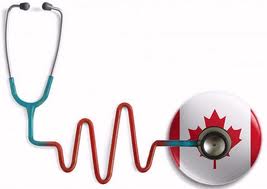Statistic Canada released a new health study that shows a link between people’s income and health. The study found that those with lower incomes had higher rates of a variety of illnesses and mortality, providing strong evidence that socio-economic inequalities in health persist despite a universal healthcare system.
Income is a well-established determinant of health. Income directly influences health through access to nutritious food, healthy living environments, education, and other health care services not provided by the public health care system. The bottom line is that good health often requires adequate income.
Lower income most disadvantaged
Using data from a previous Canadian census mortality and cancer study, the income and health study analyzed a sample of the adult population dividing the population in to quintiles based on income. The analysis showed that with each successively lower level of income, a higher mortality rate was observed, with the largest jump in rates between the two lowest groups.
The higher your income in Canada, the lower your mortality rate. Men and women in the highest income quintiles have almost a 20% lower mortality rate than people in the lowest quintile. “Extrapolated to the total non-institutional adult population, that amounts to an estimated 40,000 fewer deaths per year (25,000 fewer among men and 15,000 fewer among women)—the equivalent of eliminating all ischemic heart disease deaths.”
The strength of the association between income and mortality differed by cause of death. This was the case with health risk behaviours, such as smoking and excessive alcohol consumption. The study found that lower income people are more likely to engage in health risk behaviours than higher income people, one of the reasons for their higher rates of mortality.
Adequate income and health
Many praise Canada for its universal healthcare system and its availability to all people. And while the health system does a good job treating most people and most acute health conditions, too many people suffer inadequate health due to low income and attending problems of nutrition and food.
There’s certainly no easy solution to the association between health and income. It is becoming increasingly obvious that people’s health – and the health of the system – depend on a patient centred care, taking into account a fuller spectrum of needs. It also means ensuring all Canadians have equal opportunity to earn adequate income and achieve retirement security. Simply throwing more money into the health system and ignoring the causes of poor health won’t solve these problems.
Read the Statistics Canada study.
Read about CARP’s proposal for healthcare called One Patient.


